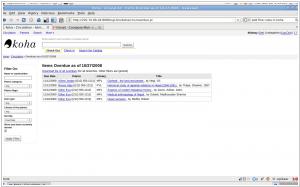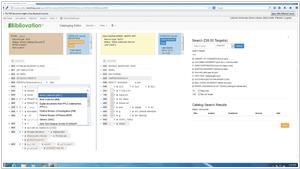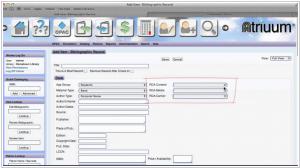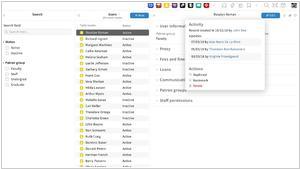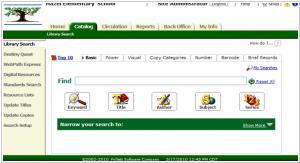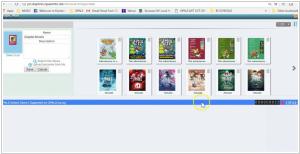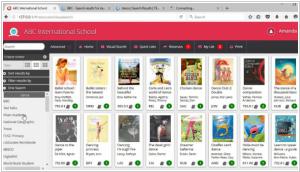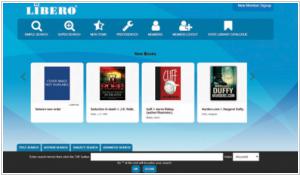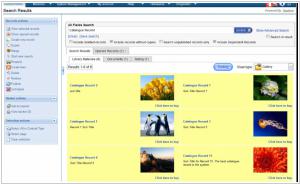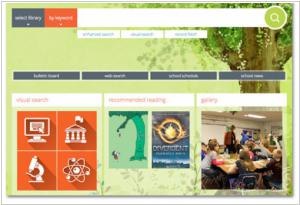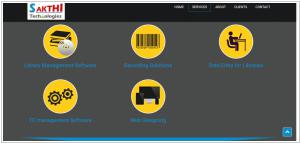Top 10 Library Management Software
February 21, 2024 | Editor: Maria Lin
Library Management Software is used by public, school, municipal, enterprise and special libraries to automate manage loans, circulation, acquisition and patron management. It also provides web-interface to users that allows to search and discover books.
1
Koha is the most advanced open-source web-based Integrated Library System in use today by hundreds of libraries worldwide. Koha offers easy-to-use circulation policies, strong patron management, intuitive navigation, and extensive permissions for staff accounts, extensive support for holds, OPAC, staff, administrative features.
2
Insignia Library System Enterprise is a high-end scalable system which can be installed for a single site or a consortium of libraries. Insignia is the most comprehensive and fully integrated library automation system on the market. It is powerful and easy to use. Users can access any feature in the system in one mouse click. The software is currently in use by public, K-12, post-secondary, and corporate institutions.
3
Bibliovation is the only Library Services Platform with a totally integrated capability for managing digital collections. Since 2005, LibLime has been at the forefront of providing library management software solutions. Our librarians, software engineers and information technologists work closely with our customers to create the best workflow solutions.
4
Atriuum, 100% Web-based system, has been built on a foundation of over twenty-five years experience in library technology and feedback from over 10,000 customers. Because it’s browser-based, patrons have instant access to the thousands of resource materials housed at your library from any Internet connected computer or mobile device. Atriuum is a powerful asset in your quest for comprehensive, reliable, and easy-to-use patron tools and resources.
5
Evergreen is a highly-scalable software for libraries that helps library patrons find library materials, and helps libraries manage, catalog, and circulate those materials, no matter how large or complex the libraries.
6
FOLIO is an open source library services platform. It supports traditional resource management functionality and can be extended into other institutional areas.
7
Destiny Library Manager is a complete library management system that can be accessed from anywhere, 24/7. It not only allows librarians and administrators keep thorough, real-time track of a library’s inventory and media assets, but also gives students a fun means of discovery and reading. Provide students with a fast, federated search that leads to results that show print materials alongside digital books, websites, and databases. Students can open eBooks right from the search results, shortening the time between discovery and learning.
8
OPALS is a proven, open-source automated library system. Whether your library has hundreds of resources or millions, there is likely a library just like yours that has adopted OPALS. Well over 2000 libraries around the world use OPALS every day to manage library resources that hundreds of thousands of library members can access on the Web in their institutions, at home or at a local cafe.
9
An elegant, yet easy to use solution that puts the library at the heart of your learning community. Integrated library management for schools designed for a modern learning environment - including cloud-hosted or local network deploy. Accessit is flexible enough to handle everything from small, specialist collections to complex multi-dimensional libraries.
10
Fully mobile, cloud-based, web browser-accessible & works with Windows 10. Discovery & consortia solutions also available. LIBERO is the perfect solution to your eResource, learning, and discovery requirements. Customisation options, ongoing product development and LIBERO WebServices ensure the library continues to effectively support the curriculum and the long-term strategy of your institution.
Ad
on bookrunch
11
Soutron’s web-based library management system engages users by providing self-service functionality, encourages collaboration and the capture of feedback and comments. It reduces the pressure on library staff and increases access to knowledge from any device including mobile smart phones and tablets. Fast cloud based and mobile friendly library management software.
12
Mandarin allows access to library resources through any computer with an Internet connection. The simple interface is easy to learn, and the appearance and features can be tailored for each library. Optional modules and services offered by Mandarin allow libraries to customize their system to meet their individual needs. M5 also supports Unicode, which allows librarians and users to catalog and search their collections in any language.
13
Handy Library Manager is fully featured, affordably priced, library management software for small to medium library. Process check in, check out, renew, or reserve transactions, barcode scanner circulations, circulation rules, manage loans (display overdue items, print/email overdue notices, print overdue reports, ...), send e-mail overdue notices
14
MODERNLIB is a Windows software for Library Automation. Three modules are available in the system. Library Management Module (Used by Librarian and Assistance). Library Circulation Module (Used by Librarian and Assistance). Student Search and Inquiry Module (Used by student and staff)
Latest news about Library Management Software
15.06.23. Koha enhanced the Acquisitions module
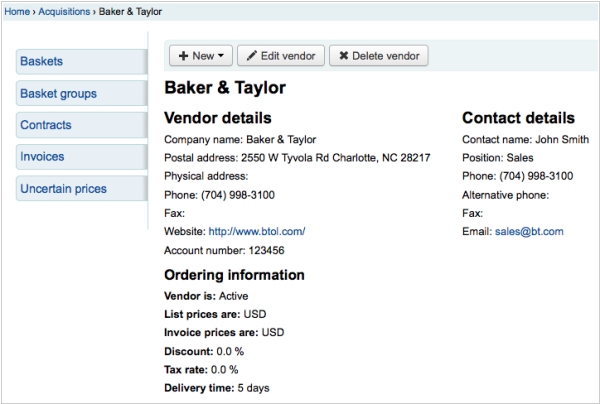
Free library management software Koha has updated the Acquisitions module that provides a way for the library to record orders placed with vendors and manage purchase budgets. The latest version introduces a modification to the order receive page, allowing users to select and process multiple orders simultaneously. This eliminates the need to reload the page or search for orders again after editing each one. A convenient 'Confirm' button is now available to receive all selected orders at once. This improvement paves the way for additional enhancements, such as implementing default actions on all selected orders. Furthermore, the new version introduces additional fields for order lines in the acquisition module. These fields provide the option to include user-defined information, which can be entered as free text or selected from predetermined lists of authorized values. It is also possible to extract information from the MARC record or create and edit a field within the MARC record.
2023. Top 4 Software for Church Libraries

Church libraries play a vital role in providing spiritual resources, educational materials, and a quiet space for congregation members to deepen their faith and expand their knowledge. As technology continues to advance, managing a church library efficiently can be made easier and more accessible through the use of specialized software. In this article, we will explore the top three software solutions that can enhance the management and accessibility of church libraries. ***
2023. Soutron ILS gets Auto Catalogue Import module
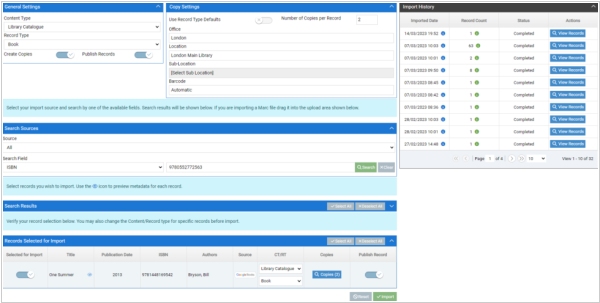
Soutron Library Management System 4.1.9 has been released, offering numerous enhancements, new features, security updates, and general improvements. This update prioritizes multi-device responsiveness across the Search Portal templates, ensuring a seamless experience regardless of the device used. The migration of bibliographic record importing to the new admin application brings along new functionalities like automatic copy creation and import history. In the revamped catalogue edit screen, the Orders Tab provides visibility into current and completed orders for the selected title. Additionally, users now have the flexibility to set the default search results template based on the device being used, enabling optimized and clearer search results for desktop, mobile, or tablet users. Moreover, the integration with Google Drive allows for the presentation of image collections directly within Soutron's records, utilizing the new Media Player plug-in within the Search Portal.
2023. Judges grant OPALS the 2023 MLA Platinum Award
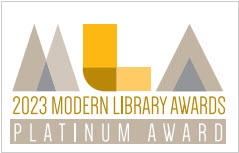
OPALS has once again achieved the prestigious Platinum Award, a testament to our unwavering commitment to exceptional customer service and product excellence. We extend our heartfelt gratitude to all the librarians who have shown us their respect and appreciation. The 2023 Modern Library Awards (MLAs) have released their review scores from participating companies in a special supplement to Library Products & Services News. The MLAs are an impartial program that recognizes outstanding products and services catering to the library industry. Companies submitted concise descriptions of their offerings for review. These were then shared with LibraryWorks readers, comprising librarians from public, academic, K-12, and special libraries, who provided their assessments on a 1-10 scoring system. The judges had hands-on experience with the products or services, and companies needed to provide four library references to qualify for submission. It is important to note that the LibraryWorks staff played no role in determining the scores.
2023. Bibliovation 7.2 gets online payment options
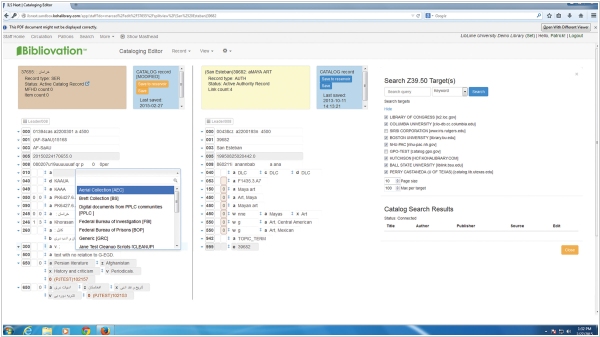
LibLime introduces the latest version of its ILS software Bibliovation 7.2. It is entirely web-based, granting researchers, library staff, and system administrators access through web browsers. By leveraging the FedRAMP authorized IaaS and PaaS certification from Amazon AWS Cloud, along with a special security authorization from the US Department of Defense's cybersecurity experts for SaaS, Bibliovation provides libraries with a highly secure and cost-effective hosting solution. It supports various standards such as MARC21, Dublin Core, RDA, and geotagging, enabling libraries to manage both physical and digital content on a single Rest API-based platform. The Bibliovation circulation subsystem is purpose-built to facilitate shared union catalog solutions, granting individual consortium members significant autonomy, including ownership of local bibliographic records, item records, and patron records. Bibliovation MARC cataloging allows for local control over cataloging rules that can complement or surpass AACR2 and RDA rulesets. The acquisitions subsystem in Bibliovation is EDI-compliant, featuring a multi-tiered fund hierarchy and supporting the import of csv data converted into the MARC21 format for streamlined acquisition workflows. Additionally, Bibliovation now includes online payment options and comprehensive NCIP support. With hosted production, reporting, and test systems, libraries have the necessary capabilities and control to effectively support their daily operations.
2022. FOLIO 14 brings electronic resource management
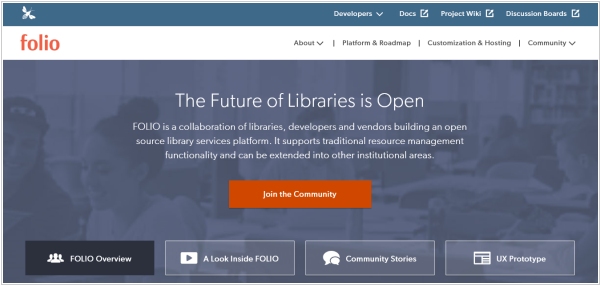
The FOLIO Open Source Community has released the new version of its Library Management system FOLIO 14, which brings additional features and functionality to the library services platform (LSP). This release introduces updates to various existing applications and features, including acquisitions, bulk-edit, electronic resource management (ERM), and more. This release aims to enhance the user experience for librarians within the FOLIO platform by introducing improvements such as better user interfaces for cataloging, data import, and circulation through the calendar app. Acquisitions enhancements include the ability to preview fiscal year rollover, generate new invoices from order records, manage GOBI integration through a dedicated user interface, and download/resend EDIFACT order export files using the Export manager app. The ERM features improvements in managing and sharing dashboards, enhanced keyword searching for agreements, advanced search and filtering options for agreement lines, display of alternate titles, and the ability to export package and title details via the eholdings app. Furthermore, bulk-edit capabilities have been expanded to allow bulk editing of user records, FOLIO holdings locations, and item loan types within the platform.
2022. Follett School Solutions to acquire ILS software Accessit

Follett School Solutions, the top provider of K-12 educational technology solutions, has officially announced its acquisition of Access-It Software Ltd (Accessit), a renowned global provider of library management systems with a customer base of over 4,000 across 45 countries. This merger unites two highly comprehensive and forward-thinking solutions in the field of school library automation. Follett Destiny Library Manager has long been the preferred choice for school districts in North America, establishing itself as a leading solution. By joining forces with Accessit Library, a global leader in the market, the combined business offers a more comprehensive package, enabling the delivery of new capabilities to customers worldwide and better addressing the evolving needs of school libraries. This collaboration between a North American solution leader and an international leader presents an exciting opportunity for innovation that will provide educators around the world with the necessary support to overcome their daily challenges.
2022. Koha adds Electronic resource management

The new version of open-source library management software Koha has added Electronic resource management (ERM) module. This new module adds a mechanism to track the selection, acquisition, licensing, access, maintenance, usage, evaluation, retention, and de-selection of a library’s electronic information resources. These resources include, but are not limited to, electronic journals, electronic books, streaming media, databases, datasets, CD-ROMs, and computer software. Also the new version adds option to require 2FA setup on first staff login, allows storing item values as a template for creating new items, adds ability to create bundles of items for circulation, adds the ability to create ‘saved searches’ for use as filters when searching the catalog.
2022. Evergreen improves interface and notifications

Open-source library management software Evergreen has released the new versio 3.10. This major feature release introduces several notable enhancements, including further Angularization of the acquisitions interfaces, the addition of support for the EDI DESADV message for advance shipment notices, integration with the Bing Maps API for geographic sorting, improved formatting of outgoing emails as HTML, the capability to use Evergreen as an identity provider for OpenAthens, compatibility with Ubuntu 22.04, the introduction of a new experimental Angular interface for circulation and patron management, and the Angularization of various other staff interfaces.
2022. Koha enables two-factor authentication
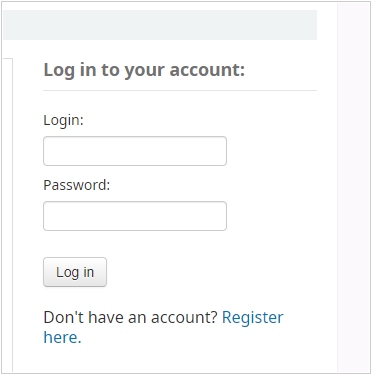
The new version of ILS system Koha 22.05 introduces an optional initial implementation of two-factor authentication (2FA) to enhance security during staff interface logins. This new feature incorporates time-based, one-time passwords (TOTP) as the second authentication factor. Librarians can utilize a dedicated application to manage the TOTP and obtain the necessary code for logging in. To enable 2FA for their account, librarians can navigate to More > Manage Two-Factor Authentication. The setup process involves the following steps: 1) Scan the QR code using an authenticator app. 2) Enter the generated one-time code. Subsequent logins will prompt librarians to enter the authenticator code after providing their regular login credentials. Any authenticator app, such as Google Authenticator, andOTP, and various others, can be utilized for this purpose. It is recommended to use applications that offer backup options for 2FA accounts, either through cloud-based or automatic methods.
2022. Libero to offer libraries more security
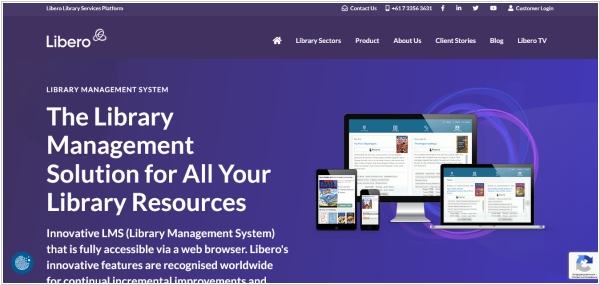
Libero has introduced several enhancements to its cloud-based library management system. These include options for default passwords and improved security measures for library members, courtesy reminder emails that provide comprehensive renewal details in one place, and the ability to store and utilize preferred names for members while maintaining consistency in official correspondence. Libraries now have the flexibility to simplify the initial access of members to online services by setting the surname or telephone numbers as the default password. Additionally, libraries can enforce password changes after the first login to the WebOPAC, ensuring enhanced security. These updates aim to enhance user experience, ensure data security, and promote inclusivity within library services.
2021. Evergreen adds acquisitions administration, holdings maintenance
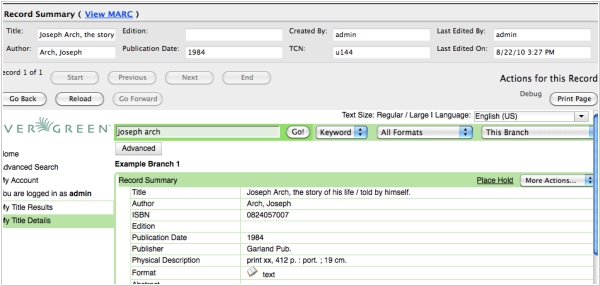
The release of Evergreen 3.8 is announced by The Evergreen Community. Evergreen is a highly-scalable software designed for libraries to facilitate the discovery of library materials by patrons and assist in managing, cataloging, and circulating those materials, regardless of the library's size or complexity. This release brings numerous new features and enhancements, such as Angular rewrites of several staff interfaces including acquisitions administration, holdings maintenance, item attributes editor, patron triggered events log, and item triggered events log. Additionally, it introduces a case-insensitive option for browsing headings, a new interface for editing notes attached to bibliographic records, improvements to the staff interface for browsing bib records attached to a heading, and consolidation of patron notes, messages, alert messages, and standing penalties into a unified notes interface. Other additions include settings for determining item value based on item price and acquisition cost, enhancements to override event dialogs in checkout and renewal interfaces, the ability to edit the patron photo URL during registration, settings for hold stalling based on pickup library, settings for default pickup location for staff-placed hold requests, utilization of a newer Stripe API for credit payments in the public catalog, display of cover images in My Account pages for items checked out, check out history, holds, and holds history, and new reporting views such as item statistics and Dewey call number blocks and ranges.
2021. Federal Government Library selects Bibliovation
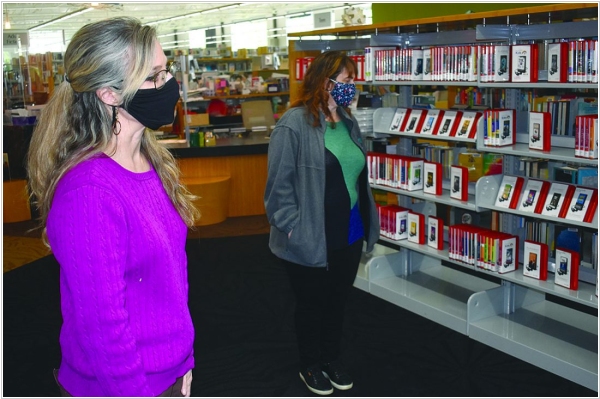
A federal government library based in Massachusetts has chosen Bibliovation as its new Library Services Platform (LSP). The library has initiated the implementation process and aims to have Bibliovation fully operational by the end of October. Bibliovation offers the necessary technical capabilities to meet the library's workflow requirements, and the cost proposal from LibLime aligns with the library's budget constraints. LibLime will collaborate closely with the library staff to provide implementation and support services, ensuring the October go-live target is achieved. The Bibliovation LSP is entirely web-based, enabling researchers, library staff, and system administrators to access the system through web browsers. By leveraging the FedRAMP authorized IaaS and PaaS certification provided by the Amazon AWS Cloud, Bibliovation offers libraries a secure and cost-effective hosting solution.
2021. Koha improves Accounting and Transfers moduls
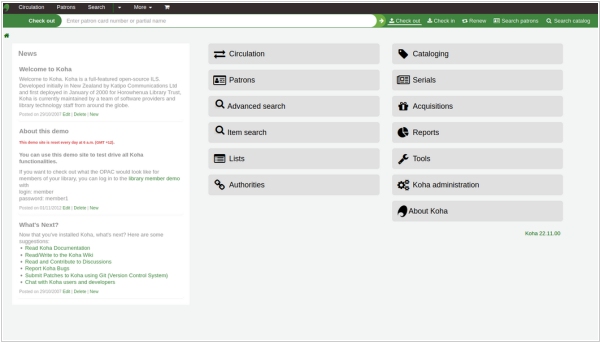
Koha, has released a major update that will be useful for small business and public libraries. The focus of this update was on refactoring the accounting code, with particular attention given to enhancing the 'Point of Sale' and 'Cash Management' features. These enhancements aim to improve the user interface by providing better access to cash-up functionality and facilitating auditing processes. Furthermore, efforts have been made to ensure that all actions related to account lines follow proper double-entry accounting methods, thereby establishing links between income and debts. A significant amount of work has been dedicated to refactoring the transfers system, resulting in improved maintainability and setting the stage for future enhancements. Notably, transfers can now be queued, and a priority system has been implemented for different mechanisms that trigger a transfer. Moreover, an audit trail has been implemented to enable easier debugging in the future. This has proven instrumental in resolving several long-standing bugs and addressing edge cases in the transfers process.
2014. Bibliovation adds new Discovery Layer
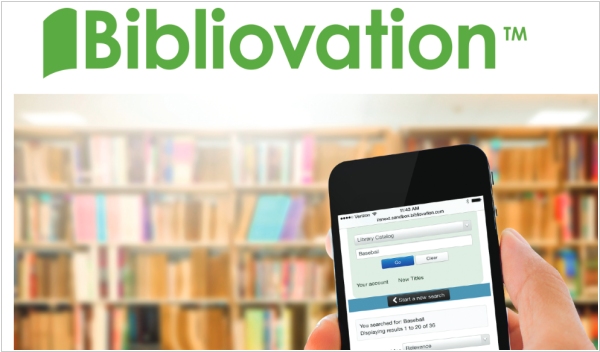
LibLime introduces the official launch of Bibliovation 5.6. It revolves around a novel Discovery Layer within the application. It is constructed using a RESTful API, enhancing local customization and enabling seamless integration with crucial third-party products and resources utilized in today's academic libraries. The release also includes noteworthy additions such as the ability to merge authority records, an OPAC editor, and support for mobile devices. Similar to earlier versions, the entire Bibliovation application operates within the Plack environment, resulting in improved performance. Additionally, Bibliovation utilizes the Solr search engine, a widely popular open-source enterprise search platform derived from the Apache Lucene project. Solr boasts exceptional scalability, facilitating distributed search and index replication. This technology empowers the search and navigation functionalities of numerous prominent internet sites across the globe.
2007. LibLime acquires library management software Koha
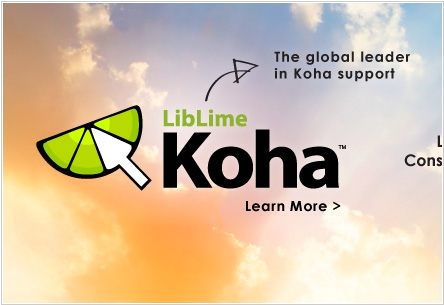
LibLime has completed the acquisition of the Koha division from Katipo Communications Ltd, the original creators of Koha. The acquisition involved various assets, including existing support contracts with libraries that had partnered with Katipo, copyrights for the original Koha source code, and ownership of the koha.org domain and Website. LibLime has been offering commercial support for Koha since early 2005. This acquisition significantly bolsters LibLime's in-house development and support capabilities, empowering the company to meet the growing demand for open-source automation solutions in the library industry. Moreover, this acquisition exemplifies one of the distinct advantages of the open-source business and development model: customers of Katipo's Koha need not be concerned about transitioning to a new integrated library system (ILS).

